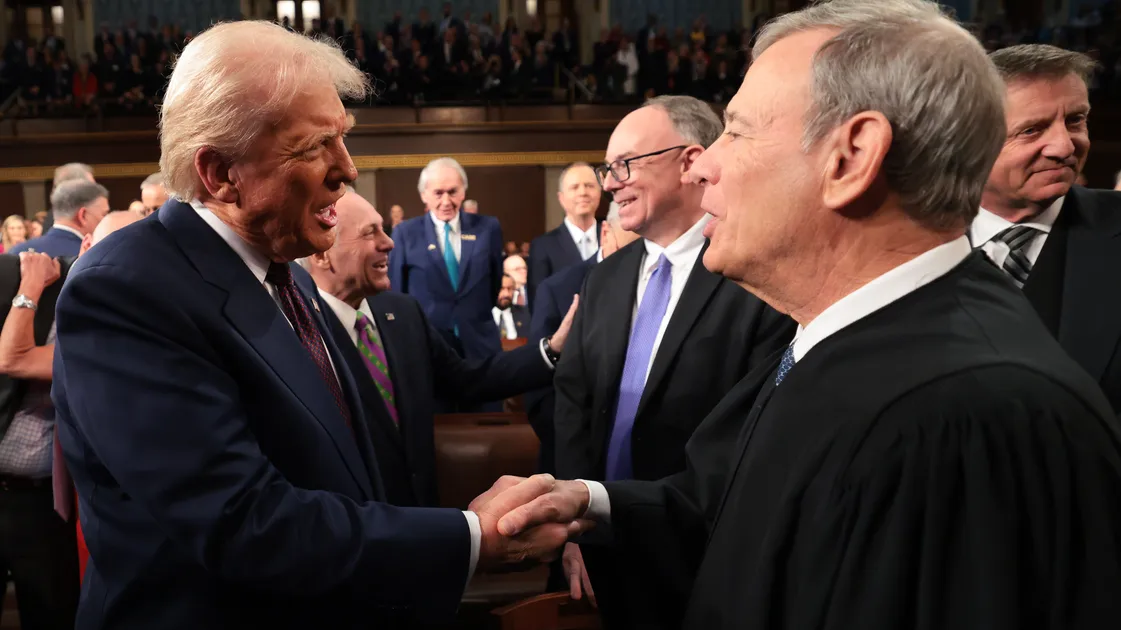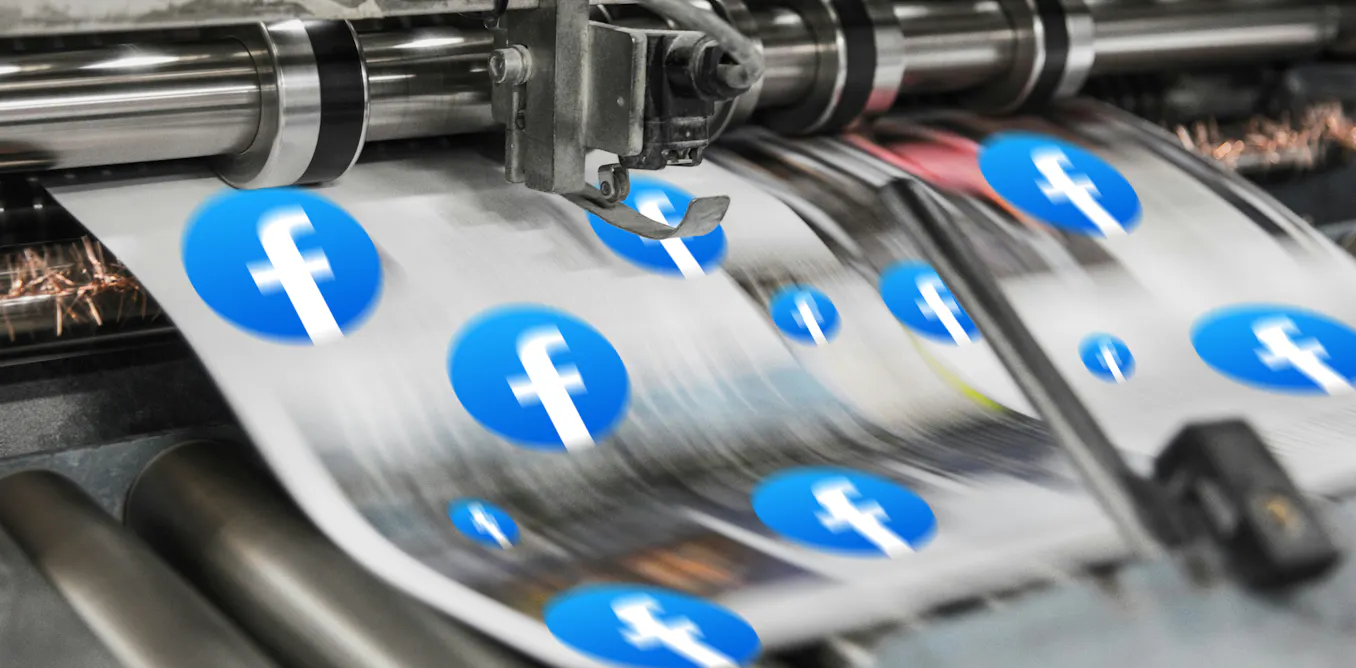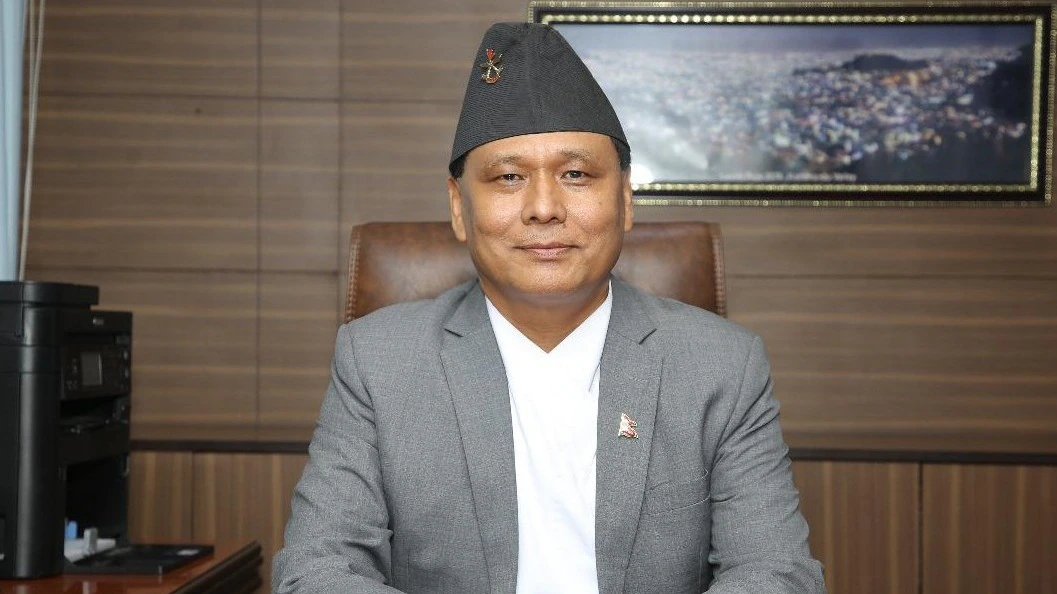
LOADINGERROR LOADING
This article is part of HuffPost’s biweekly politics newsletter. Click here to subscribe.
In a social media post that read like a ransom note, President Donald Trump made all of the warnings about the Supreme Court’s decision in the 2024 presidential immunity case come true.
Written as a message to Attorney General Pam Bondi, Trump’s post on Sept. 20 criticized “Pam” for being “all talk, no action” on the criminal referrals that he promoted for New York Attorney General Letitia James and California Sen. Adam Schiff, both Democrats who investigated him, on likely-to-be-bogus charges of mortgage fraud.
Advertisement
“They’re all guilty as hell, but nothing is going to be done,” Trump wrote.
He also attacked his own U.S. attorney for the Eastern District of Virginia, Eric Siebert, who resigned under pressure on Sept. 19, and pushed the appointment of his former personal lawyer Lindsey Halligan.
“We can’t delay any longer, it’s killing our reputation and credibility. They impeached me twice, and indicted me (5 times!), OVER NOTHING. JUSTICE MUST BE SERVED, NOW!!!” Trump said.
It is, even from this president, a frightening public admission that Trump is using the levers of power against his political enemies and those he believes have wronged him in the past. But it is not at all unexpected.
Advertisement
This is exactly the kind of retributive abuse of power that worried the dissenting liberal justices in the Trump v. U.S. case, which granted Trump ― and other presidents ― immunity from criminal prosecution for official acts taken within the president’s “core powers.”
The president has the authority to tell the Department of Justice to do anything he wants, according to the majority decision written by Chief Justice John Roberts, even calling for fraudulent prosecutions or, as prosecutors alleged in the indictment against Trump over his attempt to steal the 2020 election, sham investigations into made-up allegations of election fraud.
“The indictment’s allegations that the requested investigations were shams or proposed for an improper purpose do not divest the President of exclusive authority over the investigative and prosecutorial functions of the Justice Department and its officials,” Roberts wrote.
Advertisement
The grant of power under Roberts’ opinion leaves almost any presidential action unreviewable by courts and unchargeable as a crime. That expands executive power “beyond recognition,” Justice Sonia Sotomayor, a liberal, wrote in dissent.
“Under that view of core powers, even fabricating evidence and insisting the Department use it in a criminal case could be covered,” Sotomayor wrote.
Advertisement
And that’s exactly what is happening today. Nor has it been particularly restrained.
Federal Housing Finance Authority head Bill Pulte, a Trump appointee, has used the power of his office to obtain mortgage records for Democrats deemed to be enemies of Trump and claimed, likely erroneously, that they committed mortgage fraud and referred them to the DOJ for prosecution.
These accusations hinge on alleged documents that list secondary homes as a “primary residence,” with little evidence that these are anything more than common filing errors. A person needs to knowingly file a false form to be guilty of fraud. In other documents presented by James’ lawyers, the New York attorney general stated that the Virginia home she purchased with her daughter “WILL NOT be my primary residence.”
Similarly, Federal Reserve Governor Lisa Cook, whom Pulte accused of mortgage fraud for listing a secondary home in Atlanta as a primary residence, presented alternative loan documents in court that read: “Property Use: Vacation Home.” Atlanta property records also reveal that Cook did not receive any tax credits for the property serving as a primary residence, according to NBC News.
Advertisement
It is no surprise, then, that Siebert, the U.S. attorney for the Virginia district where James’ home lies, did not bring charges. This is a politically motivated prosecution lacking the facts necessary to charge someone with a crime.
Trump made that clear in his post, justifying the need to charge James because, “They impeached me twice, and indicted me (5 times!), OVER NOTHING. JUSTICE MUST BE SERVED, NOW!!!” (James successfully brought civil charges against Trump’s business for fraud.)
Advertisement
Trump has since installed Halligan, who has no prosecutorial experience and most recently worked as a White House aide censoring mentions of slavery from Smithsonian museums, as U.S. attorney for the Eastern District of Virginia, and given her a clear mandate to prosecute James and other Trump political foes. That includes a probe of former FBI Director James Comey, who is accused of giving false testimony to Congress in 2020 about leaks he may or may not have authorized.
It works in the other direction, too. Just as the Supreme Court said that the president may direct the Justice Department to launch a sham prosecution into political opponents, the president may also spike investigations into political allies.
Sometime after Trump’s inauguration, the Department of Justice spiked a criminal investigation into White House adviser Tom Homan’s alleged acceptance of a $50,000 bribe from undercover FBI agents in exchange for promising to help obtain federal immigration enforcement contracts. The White House claims that Homan did “nothing wrong.” In an interview with Fox News, Homan did not deny the facts of this case, instead stating, “I did nothing criminal. I did nothing illegal.”
Advertisement
This kind of prosecutorial favoritism can also be wielded as a form of extortion to create allies — the prime example being Democratic New York City Mayor Eric Adams. In February, the Trump administration suddenly dropped corruption charges brought against Adams in 2024 while Adams promised to work with the administration on its mass deportation policy. This led to multiple furious resignations of prosecutors, all Republicans, who refused to put their names to legal filings in the case.
This extreme abuse of power is the direct result of the Supreme Court’s wildly expansive view of presidential power.
Advertisement
There are few to no limits on the court’s view of presidential power in the Trump v. U.S. decision. During arguments in the case, D. John Sauer, Trump’s lawyer who is now the solicitor general, quite literally argued that the president would be immune from criminal prosecution even if he ordered the Navy’s SEAL Team Six to assassinate his political rivals, as directing military actions is a core power of the presidency. The same could be said of any use of the military, including directing the military to illegally interfere in elections or stage a coup.
“If the president decides that his rival is a corrupt person and he orders the military, or orders someone, to assassinate him — is that within his official acts for which he can get immunity?” Sotomayor asked Sauer during arguments in the case.
“It would depend on the hypothetical,” Sauer answered. “We could see that could well be an official act.”
Advertisement
In dissent, Sotomayor viewed the majority opinion as giving the thumbs-up to Sauer’s view that such outrageous acts would be considered immune as core presidential powers.
“When he uses his official powers in any way, under the majority’s reasoning, he now will be insulated from criminal prosecution,” Sotomayor wrote. “Orders the Navy’s Seal Team 6 to assassinate a political rival? Immune. Organizes a military coup to hold onto power? Immune. Takes a bribe in exchange for a pardon? Immune. Immune, immune, immune.”
TruthSavesLives
Your SupportFuelsOur Mission
Your SupportFuelsOur Mission
Dangerous myths about medicine spread fastest when watchdogs are silenced. Become a member today and help us safeguard science, protect health, and keep the public informed.
We remain committed to providing you with the unflinching, fact-based journalism everyone deserves.
Thank you again for your support along the way. We’re truly grateful for readers like you! Your initial support helped get us here and bolstered our newsroom, which kept us strong during uncertain times. Now as we continue, we need your help more than ever. We hope you will join us once again.
We remain committed to providing you with the unflinching, fact-based journalism everyone deserves.
Thank you again for your support along the way. We’re truly grateful for readers like you! Your initial support helped get us here and bolstered our newsroom, which kept us strong during uncertain times. Now as we continue, we need your help more than ever. We hope you will join us once again.
Support HuffPost
Already contributed? Log in to hide these messages.



